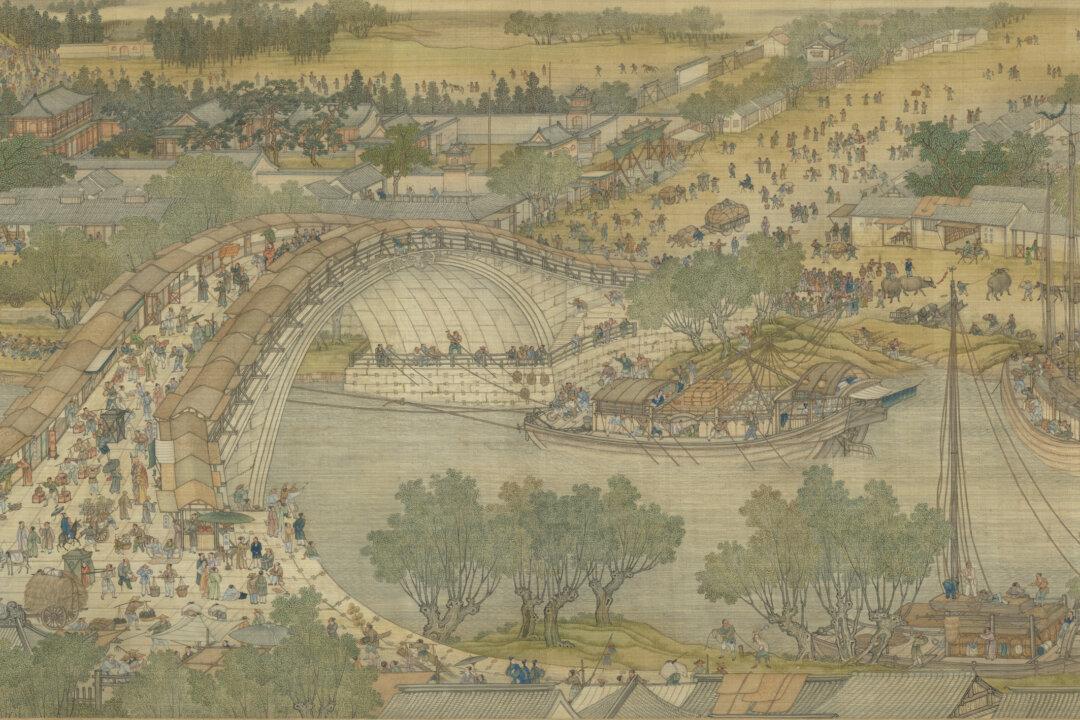On Sept. 8, Chinese people around the world will celebrate the Zhongqiu Jie (中秋節), also known as the Mid-Autumn Festival. It always falls on the 15th day of the 8th month in the lunar calendar.
It is an important occasion for family members to get together to admire the full and bright harvest moon and to enjoy eating mooncakes.
While the festival is most often associated with the legend of Chang E, since ancient times, the mid-autumn moon has also been a source of inspiration for Chinese poets. Through poetic verse about this moon, they expressed their joys and sorrows, ups and downs, homesickness and hopes.
Poetry by Du Fu
Along with Li Bai, Du Fu (712–770 A.D.) was a prominent Chinese poet of the Tang Dynasty. He is considered by many literary critics to be the greatest Chinese poet of all time.
Born into a scholarly family, Du Fu showed his talent for poetry when he was quite young. Along with reciting many famous poems of the time, by the age of 7 he could write poetry. He also received a traditional Confucian education.
When he failed the imperial examination in 735 A.D., Du Fu started wandering the country. He eventually won renown as a poet. During his travels, he met other poets of the period, including Li Bai in 744 A.D.
After a short-lived interest in Daoism prompted by travels with Li Bai, Du Fu returned to the capital, Chang'an, and again focused on Confucianism.
For several years, although he had no official position, Du Fu was well-regarded by high officials. He held this status even though he was basically penniless and had failed a second attempt at the imperial examination.
Du Fu married around 752 and had five children, three sons and two daughters. He developed lung problems in 754 and for the rest of his life often suffered one illness after another.
Du Fu and his family lived in poverty and friends provided financial support. From 765–766, he and his family moved often, traveling slowly because of his ill-health. They eventually settled near the entrance to the Three Gorges.
Du Fu was employed as an unofficial secretary by his friend and patron Bo Maolin, who became the regional governor in 766. It was during this time that Du Fu wrote around 400 poems, the last great production of his finest work. Two years later, however, Bo died and Du Fu and his family began traveling again.
Du Fu died at the age of 58 in the southeast of China. Comments about his life suggest that he was filial, affectionate, generous, faithful, loyal, and patriotic.
Very little is officially known of Du Fu’s life and what we do know comes mostly from his poems. From the two poems below, we can discern his strong desire for peace and his love for his family.
Moonlit night
The moon over Fuzhou tonight,
My wife must watch it alone in our room.
Sadly, I think of my children far away,
They are too young to understand my absence and remember the time in Chang'an.
Her flowing hair is damp with fragrant mist,
And her jade-white arms are chilled in this clear moonlight,
When will we lean at the open window together,
While the moonlight dries our tears?
Thinking of brothers on a moonlit night
The army drums deter people from traveling.
A goose can be heard on the borderland in autumn.
The dew will be frost from tonight on.
The moonlight seems brighter in my homeland.
All my brothers are separated from each other.
There is no place to ask if they are living or dead.
The letters we send have not been received.
The fighting goes on still.





